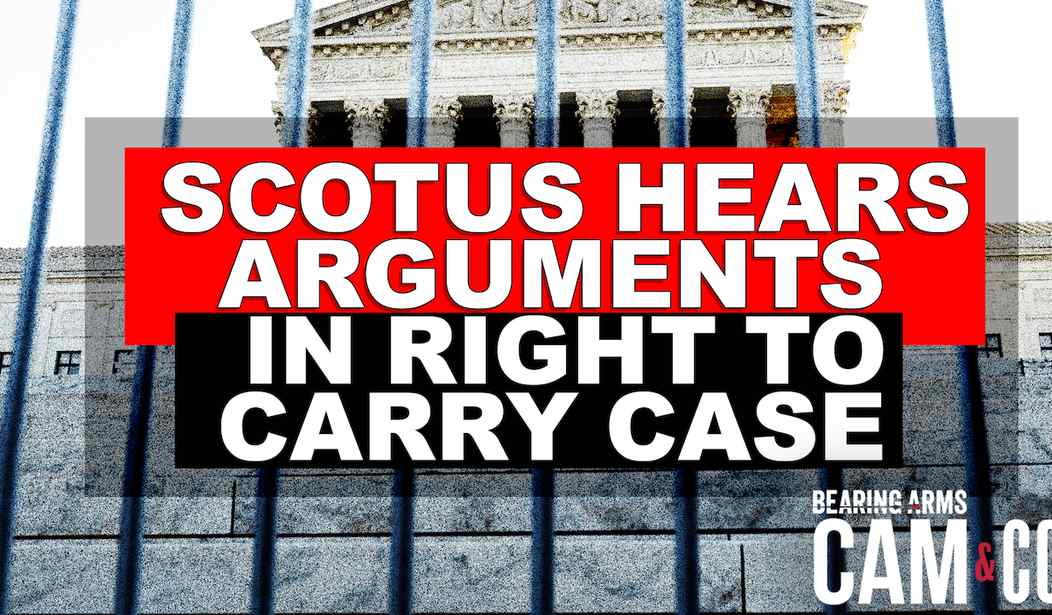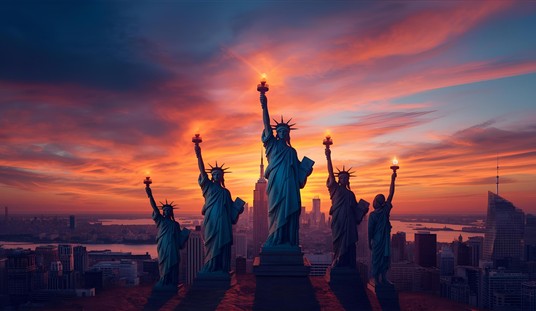It’s been over a decade since the Supreme Court heard oral arguments in a case dealing with the right to keep and bear arms, but that drought ended on Wednesday as the nine justices took up the constitutionality of New York’s subjective “may issue” permitting scheme for carrying a firearm in self-defense. Plaintiffs’ attorney Paul Clement, New York Solicitor General Barbara Underwood, and Acting U.S. Solicitor General Brian Fletcher all faced probing queries from the justices, who seemed interested in several issues related to the right to bear arms.
The right itself, and whether or not New York is violating that right was of course the primary thrust of the questions from the Court, and it was Chief Justice John Roberts who delivered the question that struck at the heart of New York’s defense of its law. Underwood had been asked by Justice Clarence Thomas about the state making it nearly impossible for residents of high-populated areas like New York City to obtain an unrestricted carry permit, which are theoretically more available for more rural residents. Underwood agreed with the premise, which led Roberts to follow up by asking why the state makes it harder for people to defend themselves where the majority of violent crimes actually take place.
Underwood responded by noting that plaintiff Robert Koch was granted a “restricted” permit allowing him to carry a firearm while hunting, fishing, or camping in remote areas, and claimed that satisfies his right to bear arms in self-defense.
“How many muggings take place in the forest?” Roberts asked incredulously. That question, which Underwood couldn’t answer, is one of the fundamental problem with New York’s argument. The state claims that it has a public safety duty to limit the carrying of firearms for self-defense, but at the same time appears to recognize that the Second Amendment protects some right to bear arms. The state’s solution? Allow some people to carry where threats are low, while restricting carrying to a chosen few in the towns and cities where residents actually live, work, and shop.
In doing so, however, they turn a right into a privilege, which was brought up repeatedly by the more conservative wing of the Court.
Samuel Alito and Brett Kavanaugh – justices who have expressed so far the most sympathy towards the gun rights advocates’ arguments – grilled New York Solicitor General Barbara Underwood on whether it was appropriate for New York to second guess the assertions from public carry applicants that they need the guns for self defense.
One of the individuals challenging the law had cited robberies in his neighborhood as a reason he needed to publicly carry a gun for self defense, and he was denied the unrestricted permit that he sought.
Alito raised the example of janitors and nurses who work late hours and might want firearms for self-protection.
There’s a substantial number of people carrying illegal guns in the city, Alito said, “but the ordinary, hard-working, law-abiding people I mentioned, no, they can’t be armed.”
Kavanaugh asked Underwood: “Why isn’t it good enough to say I live in a violent areas and I want to be able to defend myself?”
After struggling somewhat with the questions, Underwood tried to cut off the discussion by arguing that this case had not been framed around those issues. She said that if that’s the concern it should be remanded back to lower courts for consideration of those questions there.
Underwood whiffed in her response, because this case has indeed been framed around the issue of whether the Second Amendment rights of Robert Nash and Brandon Koch were violated by the refusal to issue them an unrestricted carry license. The licensing process itself is being questioned here, particularly the demand that citizens demonstrate a specific threat against their life or set of circumstances that places their need for self-defense above that of the average citizen, who by statute are unable to carry a firearm either openly or concealed for self-protection.
The issue of the standard of review that should be used when considering the constitutionality of gun control laws was also a major topic of discussion during the oral arguments, and from what I could tell it seemed that justices were leaning towards adopting a “history, text, and tradition” standard. Justice Brett Kavanaugh stated that one of his concerns with adopting a “strict scrutiny” or “intermediate scrutiny” standard of review is that either would allow for balancing tests between the right of the individual and the authority of government that would result in the courts becoming the makers of policy. I don’t know if that argument will win the day with other justices, but there were plenty of indications that a majority of the justices are concerned about lower courts ignoring or misreading previous decisions in an attempt to uphold various gun control restrictions.
There were also several questions about where carrying might be restricted if New York’s “may issue” laws were overturned, which played into New York’s argument that this case is really about allowing “any gun, anywhere”, but Clement was fairly quick to point out that the Court doesn’t need to get into that particular issue in this case. New York State Rifle & Pistol Association v. Bruen is ultimately about who can carry, not where they can do so. That might take some followup litigation, but it should not be a reason for the Court to conclude that the right to bear arms is an extraneous part of the Constitution.
Now, it’s important to note that Paul Clement and the plaintiffs (which would be a great name for a band, by the way) are not asking that the Supreme Court declare all carry regulations unconstitutional. They’re not demanding that New York become a Constitutional Carry state. Clement was asked specifically if “shall issue” laws would provide the relief that his clients are looking for, and he made it clear that they would. The issue here is the arbitrary and subjective system that New York has established to grant or deny permission to carry a firearm in self-defense, and I feel pretty confident that a majority of the Court is going to conclude that those laws do indeed unconstitutionally infringe on the right of individual citizens and their right to keep and bear arms.








Join the conversation as a VIP Member